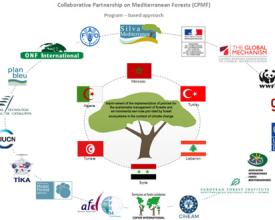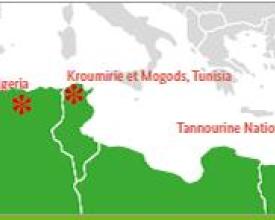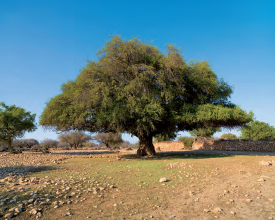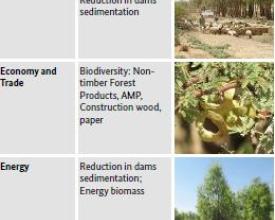Capacity Development for Forest Ecosystem-based Adaptation to Climate Change
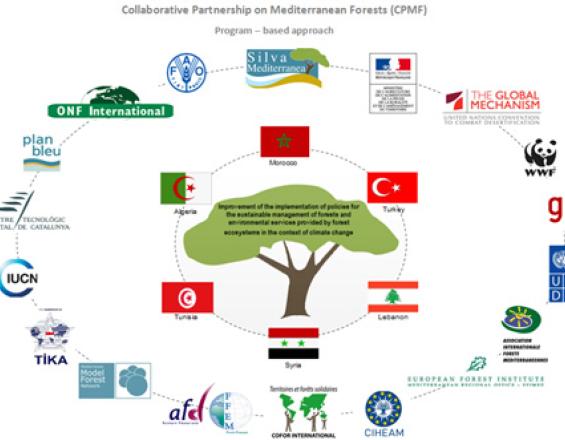
Overexploitation of forests in the region, overgrazing, forest fires, rapid urbanisationand the impacts of climate change are endangering forest functions in the Mediterranean region. The GIZ Regional Programme 'Capacity Development for Forest Ecosystem-based Adaptation to Climate Change (FEbA)' is tackling these issues by (a) linking non-forest actors with those engaged in forest management and (b) by capacity development targeting in first instance decision makers.
Impacts
(1) Actions have been carried out on a local, regional, national and MENA (Middle East and North Africa) level to promote and enhance the valorisation of forest ecosystems goods and services for reducing vulnerability to climate change. (2) A ‘community of practice’ at MENA level for the exchange of lessons learned has been established. (2) Forest management cooperates in many locations with non-forest actors (in tourism, agriculture, water management etc.), for combined adaptation planning. (3) Forest management promotes participation with those benefiting from forest services or bearing the consequences of the loss of ecosystem services. Impacts are (a) More job opportunities (e.g. in ecotourism), (b) Improved resource use and higher biodiversity due to training courses in improved forest, land and water resources utilization, (c) Higher awareness among the public regarding conservation and /or efficient use of soil, water and forest resources. All these measures contributed to a better protection of forest resources, their improved adaptation to climate change, to a higher degree of biodiversity and a better living standard of people living in the forest or from the forest.
